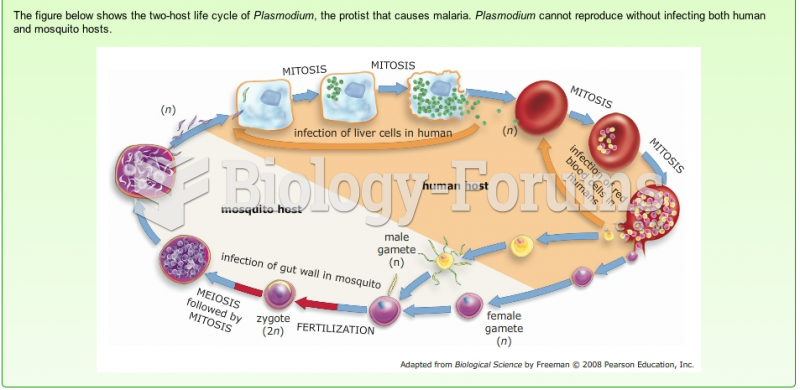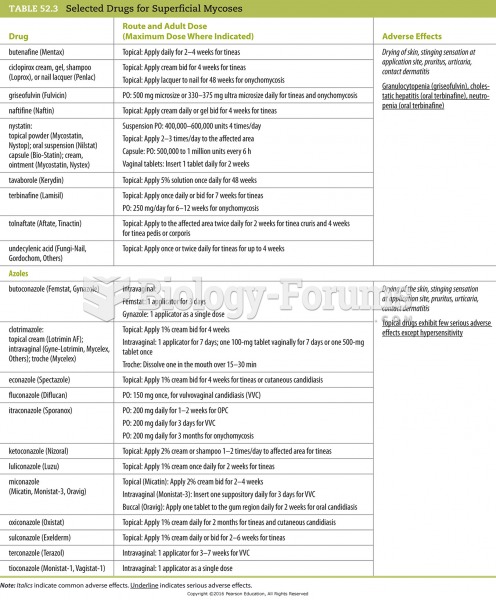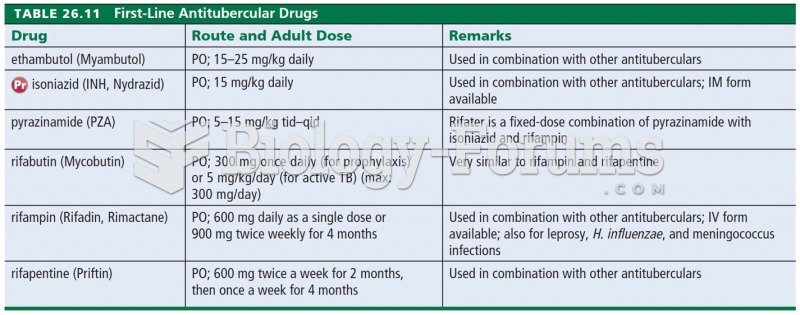This topic contains a solution. Click here to go to the answer
|
|
|
Did you know?
Eating food that has been cooked with poppy seeds may cause you to fail a drug screening test, because the seeds contain enough opiate alkaloids to register as a positive.
Did you know?
There are more sensory neurons in the tongue than in any other part of the body.
Did you know?
Approximately 500,000 babies are born each year in the United States to teenage mothers.
Did you know?
More than 30% of American adults, and about 12% of children utilize health care approaches that were developed outside of conventional medicine.
Did you know?
Alcohol acts as a diuretic. Eight ounces of water is needed to metabolize just 1 ounce of alcohol.







